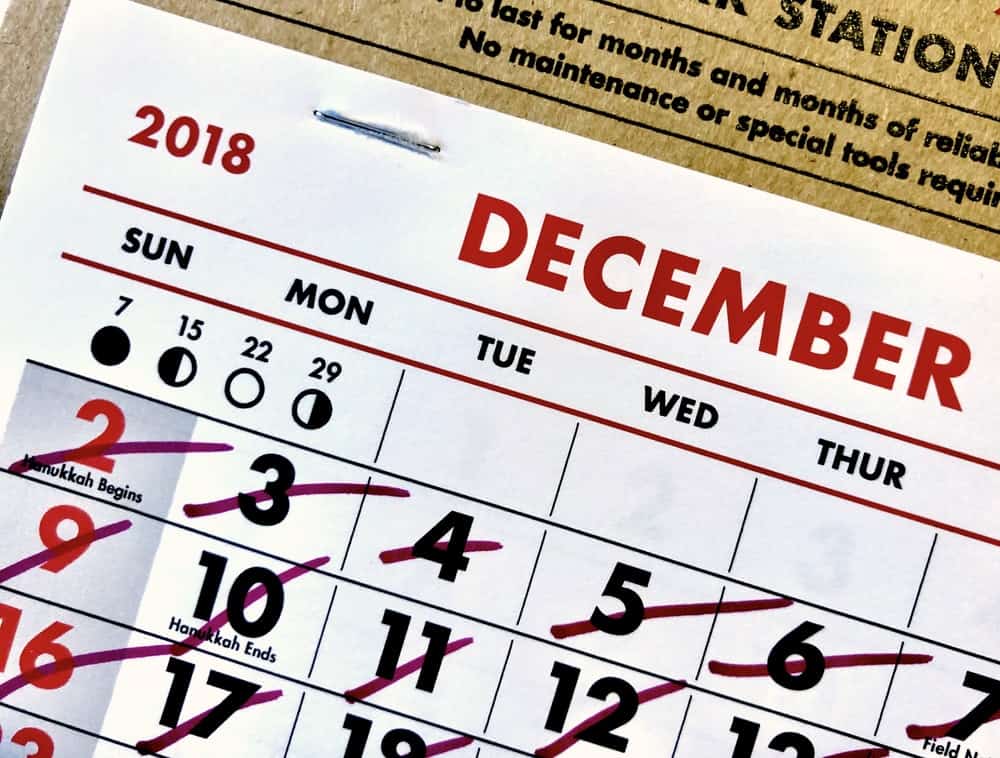- Long-distance relationships may require a bit of extra effort, but there’s no reason why they can’t work long-term
- As 40% of people in the UK have been in an LDR, they’re hardly uncommon
- Read on for some top tips on making your long-distance relationship work

Be honest and communicate
It sounds basic, but it’s vital that you keep open fluid channels of communication with your partner. As relationship therapist Aoife Drury tells Cosmopolitan, “trust is a necessity to any healthy relationship.”
“When entering into, or maintaining a long-distant relationship, issues around trust can be magnified,” Drury says. She also stresses that you need to “understand the difficulties you will face and talk about them with your partner.”

Not only do you need to be honest with your partner – but you also need to be honest with yourself. For instance, don’t assume that you’ll suddenly be able to be really frank with your partner once you’re in an LDR if you’ve struggled to be upfront in normal circumstances. Things will only get harder, not easier, when you’re miles apart from each other.
If you’re honest about what you’ll find difficult from the get-go, you’ll have a much better chance at navigating your LDR.
Keep conversation going
To quote Jim Carrey’s Eternal Sunshine of the Spotless Mind character, Joel Barrish: “constantly talking isn’t necessarily communicating.” But in a long-distance relationship, it is pretty important to keep chatting, even if you don’t really have anything you need to say.

Explaining this further, Drury says that “open and honest communication is vital so as to maintain an understanding of what is happening for you as individuals.” So even though days and weeks might pass without anything extraordinary happening in your life, it’s still good to keep your partner in the loop.
This doesn’t mean that you have to routinely tell them exactly what you had for breakfast each day, but it’s nice to let them know if you had a particularly good day at work or if you had a great time meeting up with a friend.
Drury adds that it’s vital to “remember tone and attitude can be misread in texts.” It’s true – while one of you might love using emojis and be liberal with the number of ‘x’s you send, the other might send more formal messages which can be construed as ‘cold.’ To avoid misreading your partner’s tone in texts, schedule phone calls where possible or send voice notes.
Try and ensure you always know when you’re next going to see them

Relationship coach Adam Maynard tells Elite Daily that it’s important to always know when you’re next going to see your partner. “Knowing exactly how long you have to wait to see your partner in person again can help take some of the edge off of the intervening time,” he says. “Sometimes keeping the spark alive is as much about keeping negative feelings at bay as it is about creating positive ones.” He’s right. Even if you’re next scheduled to see your partner in a few months’ time – or longer – it’s a lot easier to manage if you know exactly when you’ll see them again.
If you’re going extended periods of time without really knowing when you’ll next see your SO again, this can give rise to anxiety and may leave you feeling as though your partner isn’t serious about the future of your relationship. You’d be justified in thinking so – a partner skirting around making plans for the future would ring alarm bells for anyone.
Some couples might be OK with a more laidback approach and will be happy to play things by ear. But if you feel as though your partner is reluctant to nail down a date for your next reunion and it’s getting you down, open up a dialogue with them.

Explain to them that you feel as though their unwillingness to organise something makes you feel like you’re not a priority, and see how they react. It could be that your partner is a very easygoing person and it just never occurred to them that it means a lot to you to have a date set in stone for your next meeting.
Think about what you – as an individual – want from a relationship
It’s sometimes healthy and helpful to look at the relationship ‘selfishly’ just to see if your needs can be reasonably met if the relationship is long-distance. Some people value physical touch really highly in a relationship, and if this is the case for you, you risk feeling unfulfilled and unloved if you choose to enter into an LDR.
Anita Chlipala, author of First Comes Us: The Busy Couple’s Guide to Lasting Love, tells Bustle: “if physical affection is one of your top needs, you risk feeling more unloved without your partner being consistently physically present. You also risk not feeling as satisfied in a relationship without a top need being met.”

It’s perfectly valid to crave regular physical affection in your relationship, which is why it’s essential to question whether you – as an individual – can cope with an LDR.
It’s also important to note that if you end up calling time on your relationship, that doesn’t mean you’ve ‘failed’ to make it work – it just means that you were mature and insightful enough to realise that a long-distance relationship wasn’t compatible with you and your partner’s needs. It’s vital that you don’t force things just for the sake of staying in the relationship.

